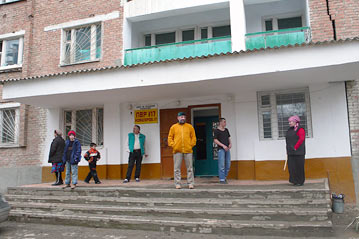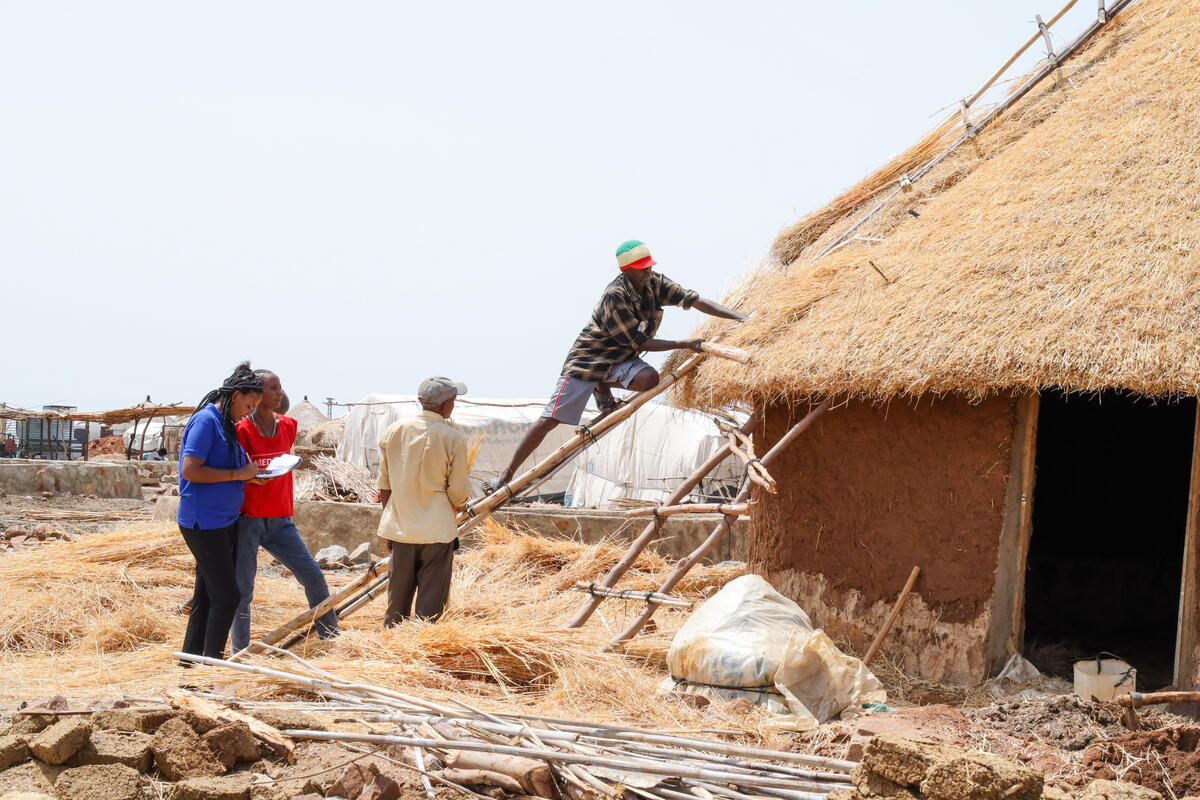Chechnya announces major housing programme for displaced people
Chechnya announces major housing programme for displaced people

GROZNY, Chechnya, Russian Federation, March 27 (UNHCR) - The authorities in Russia's war-ravaged republic of Chechnya have announced that, by the end of this year, they will provide apartments to 3,000 displaced families currently living in temporary accommodation centres.
Asu Dudarkaev, head of the Chechen department of the Federal Migration Service, said that 80 percent of temporary accommodation centres in the republic will be closed by the end of this year and certain categories of their residents will be provided with alternative accommodation. Among those who will benefit are families who lived in apartment blocks destroyed during the Chechen conflict and individuals and families in particularly vulnerable situations.
"Until recently, [displaced] people were coming back from [the neighbouring republic of] Ingushetia and we had to provide temporary shelter," Dudarkaev said during a recent meeting with UNHCR visitors in the Chechen capital, Grozny. "Now we are closing these accommodations. We have 3,000 apartments relinquished by people who left Chechnya permanently and received compensation from the federal government. We are renovating these properties and will make them available to internally displaced people in Chechnya."
Signs of physical reconstruction are to be found everywhere in Grozny which, until recently, was a byword for a city obliterated by war. Huge areas of Grozny, including residential blocks, were razed to the ground when Russian Federation troops recaptured the city from separatists in 1999-2000. At the time most of Chechnya's population fled to other parts of the Russian Federation or abroad.
"There are 20,000 construction jobs in Chechnya today and the number is growing," Dudarkaev said. "This provides a good income to many people and has a positive impact on the local economy."
The UN refugee agency, which supports the reintegration of internally displaced people in Chechnya through regular missions from its offices in Ingushetia and North Ossetia, has cautiously welcomed the ambitious housing programme.
"We welcome the Chechen authorities' commitment to provide adequate housing to internally displaced people," said Wolfgang Milzow, UNHCR representative for the Russian Federation. "The process of allocating the new apartments, however, needs to be done in a fair and transparent way, which takes account of people's individual needs," he added.
Milzow said rigorous checks should be carried out to ensure that people really do have an adequate place to stay before they are moved from the temporary accommodation centres.
Despite the many outward signs that things are improving in Chechnya, serious human rights abuses by law enforcement bodies still persist, according to the Council of Europe and other organisations.

Despite security restrictions, UNHCR maintains protection monitoring functions in Chechnya through regular missions and through the activities of its local partners. UNHCR's partners provide qualified free legal advice and counselling services to the war-affected population - including returnees and people displaced inside Chechnya - on issues ranging from documentation and compensation for lost housing and property, to legal representation in the civil and criminal courts in order to address human rights abuses.
UNHCR also has a number of quick-impact projects designed to help returnees and displaced people in Chechnya and in Ingushetia by providing them with a basic income through small businesses. Other projects are socially-oriented, such as the provision of musical instruments to a boarding school for blind children and photocopiers to a local library in Grozny.
By William Spindler in Grozny, Chechnya, Russian Federation








